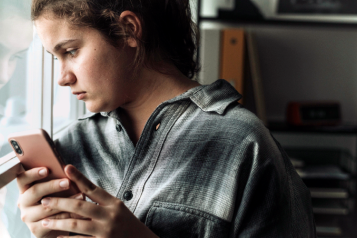Mindfulness – what is it, and how can it help our Young Listeners?

This week we had our first session on Mindfulness – a practice that helps calm our emotions and handle stressful situations in a more controlled way.
Learning Mindfulness techniques will help our Young Listeners personally and prepare them to manage any emotional situations they may experience when talking to other young people about their health and care experiences.
Through the use of breathing techniques, and practiced thought patterns, Mindfulness allows us to control the ‘fight or flight’ evolutionary response when our brains are telling us we are in danger, and allows us to address the situation more effectively.
In this first session we focused on resilience. As a group we talked about what resilience means and how it can help us in those difficult situations we often find ourselves in. The Young Listeners opened up about experiences in the past where they have felt difficult emotions, or struggled with stressful moments in their lives, and they were eager to learn some ways of helping this in future.
We broke down some of the misconceptions of Mindfulness; of robed monks sitting cross legged for hours on end, incense burning and a blossom tree in the background. We talked about how Mindfulness can be as simple as taking one deep breathe. Inhale… and exhale… Doesn’t that feel better?
We then closed our eyes and tried to focus on where we could feel our breathing. Was it under our nose? Was it our chest inflating? Was it the rise and fall of our stomach? We each felt it in different places, but we all found the benefit of concentrating on our breathing, and feeling that sensation, wherever it was, and allowing ourselves to be present.
After discussing how we felt post-breathe exercise, we turned to an activity called ‘The Resilience Punchbag’. Once again, we all closed our eyes (except me, I had to read my notes!) and listened to a set of emotions – happy, sad, joyful, frightened, and so on. With each emotion the Young Listeners were instructed to notice where they could feel it. Were they rounding their shoulders and making themselves small? Did they feel a smile trying to break through? When the list was complete, we discussed how they felt, talking of how each emotion brought up memories, both good and bad, and how the negative emotions could feel quite harmful.
This is one of my favourite exercises, as it provides such a visceral response, one word can induce such a real response in the body.
We discussed how easy it is to dwell on those past experiences and negative memories, and how that can easily ruin a day, a week etc. We discussed how that is ok and not a weakness. We talked about how, from those experiences, we learn for next time, and through Mindfulness we are able to take a few calming breathes and rethink our response to slow down that ‘fight or flight’.
The hour came around far too fast, but everyone of us could feel the benefits. The Young Listeners expressed their enjoyment of the activities and couldn’t wait for our next Mindfulness session in two weeks’ time.
I highly encourage you to try some of these exercises, especially when you are feeling anxious and stressed, as I am sure lots of us are these strange times. For more information please don’t hesitate to email or check out Louisa Miles’ website. She gave us (the Healthwatch Somerset team) a six-week course on all the exercises I will be sharing with our Young Listeners.
Thanks for taking the time to read this, each new session is as exciting as the last.

